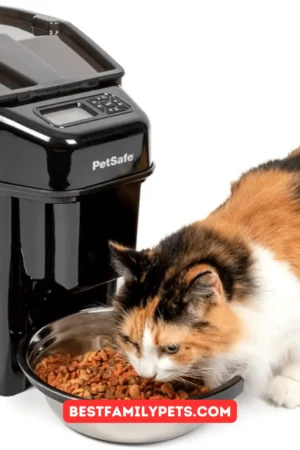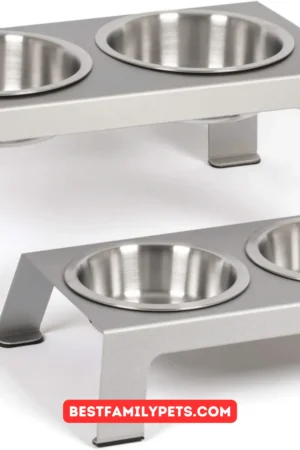Puppy Poop Overload: The Reasons Behind Frequent Defecation
Uncover the causes of frequent puppy poop. Gain insights into the reasons behind increased defecation and ensure your pup’s well-being.
As a pet owner, it’s essential to understand your puppy’s bathroom habits, including their frequency of defecation. While puppies tend to poop more frequently than adult dogs, excessive and frequent defecation can be concerning. In this article, we will explore the reasons behind frequent puppy poop and provide helpful tips on managing this issue.
Understanding Puppy Poop
Before delving into the causes and solutions for frequent puppy defecation, it’s crucial to grasp the basics of normal bowel movements for young dogs. Puppies have developing digestive systems that are more sensitive and less efficient compared to adult dogs. Consequently, they tend to eliminate waste more frequently.
Normal Pooping Frequency
On average, a healthy puppy may defecate anywhere between two and five times a day. However, this frequency may vary depending on factors such as the pup’s age, diet, and overall health. It’s important to establish a baseline for your individual puppy’s regularity to better identify when they are experiencing an overload of poop.
Causes of Frequent Defecation in Puppies

Dietary Issues
One common cause of excessive puppy poop is an improper diet. Feeding your puppy low-quality food or overfeeding them can result in increased bowel movements. Poorly balanced diets lacking essential nutrients may lead to digestive disturbances, causing frequent defecation. Consulting with a veterinarian to ensure your puppy is on a suitable diet is crucial.
Parasites and Infections
Parasites such as worms can infest a puppy’s gastrointestinal tract, causing digestive issues and frequent bowel movements. Common types of intestinal parasites in puppies include roundworms, hookworms, and giardia. Infections, such as viral or bacterial gastroenteritis, can also lead to loose stools and increased poop frequency.
Stress and Anxiety
Puppies are sensitive creatures, and stress or anxiety can affect their bowel movements. Changes in their environment, such as moving to a new home or being separated from their littermates, can cause temporary digestive upset and result in more frequent pooping. Ensuring a calm and secure environment for your puppy can help minimize stress-related bowel issues.
Medical Conditions
Certain medical conditions can contribute to frequent defecation in puppies. These may include food allergies, inflammatory bowel disease, pancreatitis, or other gastrointestinal disorders. If you notice persistent changes in your puppy’s poop frequency accompanied by other concerning symptoms, it’s important to seek veterinary care for a proper diagnosis.
How to Manage Frequent Puppy Poop?

Establish a Feeding Routine
Maintaining a consistent feeding schedule helps regulate your puppy’s digestive system. Divide their daily food portions into multiple small meals and feed them at the same times each day. Avoid free-feeding, as it can lead to irregular bowel movements.
Monitor the Diet
Ensure that your puppy is receiving a well-balanced diet appropriate for their age and breed. High-quality puppy food that meets their nutritional requirements can aid in proper digestion and reduce excessive pooping. Avoid giving your puppy table scraps or food that is known to cause digestive issues.
Regular Veterinary Check-ups
Routine veterinary check-ups are essential to monitor your puppy’s overall health and address any concerns promptly. Your veterinarian can provide guidance on nutrition, parasite prevention, and identify any underlying medical conditions that may contribute to frequent defecation.
Reduce Stress and Provide Comfort
Creating a safe and stress-free environment for your puppy is crucial. Minimize changes that may cause anxiety, provide adequate exercise and mental stimulation, and establish a routine for sleep and play. Comforting your puppy during stressful situations can help normalize their bowel movements.
When to Seek Veterinary Care?
While occasional variations in puppy poop frequency are normal, persistent and significant changes should be evaluated by a veterinarian. If your puppy’s frequent defecation is accompanied by diarrhea, blood in the stool, lethargy, vomiting, or other concerning symptoms, it’s important to seek professional advice for an accurate diagnosis and appropriate treatment.
Conclusion
Frequent defecation in puppies can be a cause for concern, but it is often manageable with proper care and attention. Understanding the potential causes, such as dietary issues, parasites, stress, and medical conditions, can help you address the problem effectively. By establishing a feeding routine, monitoring your puppy’s diet, providing regular veterinary care, and reducing stress, you can help regulate their bowel movements and ensure their overall well-being.
FAQs
1. How many times a day is it normal for a puppy to poop?
On average, a healthy puppy may defecate anywhere between two and five times a day. However, individual variations exist based on factors like age, diet, and health.
2. Can stress cause frequent puppy poop?
Yes, stress and anxiety can affect a puppy’s bowel movements, leading to more frequent defecation. Ensuring a calm and secure environment can help alleviate this issue.
3. Should I be worried if my puppy poops a lot?
While puppies tend to poop more frequently than adult dogs, persistent and significant changes in poop frequency should be evaluated by a veterinarian, especially if accompanied by other concerning symptoms.
4. What should I feed my puppy to reduce frequent defecation?
Feeding your puppy a well-balanced, high-quality diet appropriate for their age and breed can aid in proper digestion and reduce excessive pooping. Consult with a veterinarian for specific dietary recommendations.
5. When should I seek veterinary care for my puppy’s frequent poop?
If your puppy’s frequent defecation is accompanied by diarrhea, blood in the stool, lethargy, vomiting, or other concerning symptoms, it is important to seek veterinary care for an accurate diagnosis and appropriate treatment.
-

7 Essential Cleaning Tips for Pet Owners
-



How Long Do Clownfish Live | A Complete Guide
-
How to Effectively Clean Pet Dander from Your Air Ducts for a Healthier Home
-



The Importance of a Dog Leash
-



The 12 Best Dog Bowls of 2024 for Dachshunds: How to Choose the Right One
-



Review: PetSafe Simply Feed Automatic Feeder
-



Review: JW Pet Skid Stop Slow Feed Bowl
-



Review: Dogit Slow Feeder Dog Bowl
-



Review: Outward Hound Fun Feeder Slo Bowl
-



Review: NMN Products Raised Dog Bowls
-



Review: Pet Zone Adjustable Elevated Pet Feeder
-



Review: FOREYY Raised Pet Bowls for Small and Medium Dogs
-



Review: PetFusion Elevated Dog Bowls
-



Belgian Malinois Pitbull Mix: Loyal, Energetic & Smart
-



Overview of Small Belgian Dog Breeds
-



Small Dogs that Get along with Herding Malinois Dog
-



Overview of DNA Testing for Belgian Malinois Dogs
-



Adopting a Puppy/ What you need to know


















